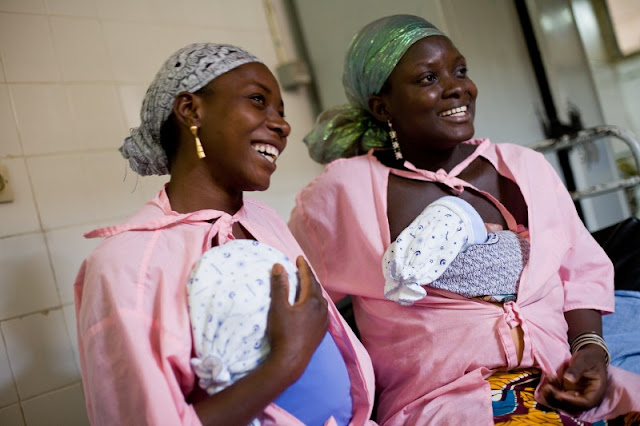I write a lot about new inventions that are improving people’s health
and saving lives around the world. But some breakthrough ideas don’t
involve any new technology at all. Let me tell you about one of my
favorite examples—a solution that is readily available, requires no
special equipment, and is so cheap any government can support it.

It’s called kangaroo mother care—
continuous
skin-to-skin contact between mothers and low-birth weight or premature
babies. Combined with exclusive breastfeeding, this practice prevents
neonatal deaths by regulating the baby’s temperature, accelerating
weight gain, and reducing the risk of infections. What’s more, it
encourages mother-infant bonding at a critical time of the child’s
development. |
| https://youtu.be/5rT0me9t7gQ |
Two Colombian pediatricians, Edgar Rey and Hector Martinez, developed
kangaroo mother care in the 1970s. The doctors were struggling to care
for preterm infants in Bogota, where few incubators were available.
Looking for a solution, they drew inspiration from how kangaroos care
for their young. Baby kangaroos, born the size of a lima bean, develop
inside the pouch on their mother’s belly where they can feed and stay
warm.
Years later, study after study
has proven the benefits of skin-to-skin contact between mothers and
their newborns. For preterm babies, it’s even better than warming them
in an incubator. And even as new lifesaving technologies are introduced
to facilities to support newborns, kangaroo mother care is an
opportunity to keep mothers at the center of their baby’s care.
When kangaroo care has been adopted on a national scale, the impact
is truly remarkable. Rwanda, for example, cut its newborn mortality rate
by 30 percent between 2008 and 2015, largely due to the spread of
kangaroo mother care along with encouraging exclusive breastfeeding and
cutting the umbilical cord in a hygienic way.
Surprisingly, despite its clear benefits, kangaroo mother care is not
practiced widely. But it should be. Every year, about 2.7 million
newborns die during their first month of life. The majority of newborn
deaths occur in parts of the world where there are no hospitals or
clinics nearby, and no access to skilled birth attendants.
Many of these lives could be saved with simple, affordable health
interventions like kangaroo mother care. Our foundation, along with many
other organizations, have been working to spread the word about
kangaroo mother care with policymakers and health officials so more
parents can be trained to use this lifesaving practice.
If you need another reason to be convinced of the power of kangaroo mother care: A recent study
found that this practice is a gift that keeps on giving. Kangaroo
mother care had “significant, long-lasting social and behavioral
protective effects” on children as they entered young adulthood. Parents
who practiced kangaroo mother care were more protective and nurturing,
and their children were less likely to miss school and less likely to be
aggressive or hyperactive. These positive effects were still present in
the children 20 years later! Now that’s a smart investment in our
children’s future.
By Bill Gates
Gatesnotes










No comments:
Post a Comment